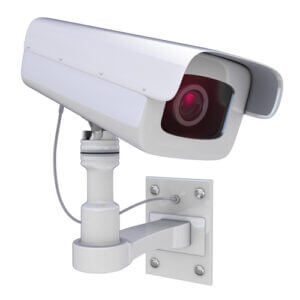Advice for Employers and Recruiters
Are you being watched at work?
Shouldn’t you be working right now? If you’re wasting time on the job, you’re in good company. More than two-thirds of employees (69 percent) admit to wasting time at work every single day. That’s according to a Salary.com “2013 Wasting Time at Work Survey” of more than 1,000 people. And if you think that’s bad, consider this: The National Restaurant Association says up to 7 percent of fast food restaurant sales are lost to employee theft, as reported by The Atlantic last year.
Numbers like these are likely why an increasing number of employers are monitoring their employees at work.
From surveillance with video cameras to snooping into employee emails, employer monitoring is slowly becoming the rule, not the exception, thanks to numerous technological tools that make it easier than ever. Companies like SpectorSoft, a software surveillance company in Florida, are charged with watching everything employees do. Taxi companies are installing cameras in cabs to watch for employees sleeping on the job or texting while driving. And 90 percent of retailers monitor their staffs with video cameras according to a 2012 article in The Atlantic — in fact, doing so helped Dunkin’ Donuts reclaim up to 13 percent of sales at their stores around the country.
Though currently only about 10 percent of employers monitor employees’ use of social media, research firm Gartner predicts that number will climb to 60 percent by 2015.
All this offends a growing number of employees claiming privacy violations. In March of this year, outraged faculty at Harvard University claimed their rights had been egregiously violated when administrators, in an attempt to discover who leaked information about a school scandal to the media, secretly searched the email accounts of 16 resident deans. Sociology professor Mary C. Waters told The New York Times, “I think what the administration did was creepy … this action violates the trust I once had that Harvard would never do such a thing.”
Creepy, maybe, but not illegal. Federal laws governing workplace privacy and employee monitoring state that email systems, voicemails, cell phones and computers purchased and used by a company are owned by that company and are therefore subject to employer review. That includes incoming and outgoing messages.
But as the lines between work and non-work activities become increasingly blurred — for instance, work texts exchanged on the weekend, or personal messages exchanged at work (but during non-work hours) — establishing boundaries gets trickier. In general, the rule of thumb is that employees should expect to be monitored at work and act accordingly.
By Jessica Santina
This article is originally published on OnlineDegrees.com.
New Job Postings
Advanced Search